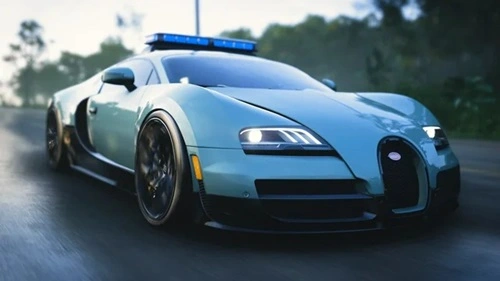No, it is not inherently illegal to pass a police officer in the United States, but it must be done lawfully and safely. Passing a police car can attract attention and scrutiny, so it’s essential to ensure that you comply with all traffic laws and avoid any actions that could be interpreted as reckless or aggressive.
Legal Considerations When Passing a Police Car

Passing a police vehicle follows the same rules as passing any other vehicle. However, drivers should exercise caution and understand the specific circumstances under which passing a law enforcement vehicle could lead to legal issues.
1. Speeding While Passing
Passing any vehicle, including a police car, requires staying within the posted speed limit. Accelerating beyond the speed limit to overtake a vehicle is illegal and can result in a citation, even if the police car is driving below the speed limit.
2. Right-of-Way and Lane Use
- Passing must be done in a designated passing lane or under circumstances where it is safe and legal.
- Avoid passing in no-passing zones, on curves, or in areas marked with solid yellow lines.
3. Emergency Vehicles
If a police car is operating with its emergency lights or sirens activated, you are legally required to yield and pull over. Attempting to pass an active emergency vehicle is illegal and can result in significant penalties.
4. Intent and Behavior
Even if passing is technically legal, erratic or aggressive behavior, such as tailgating or cutting off a police car, can be interpreted as reckless driving or failure to maintain safe control of the vehicle.
Common Scenarios for Passing a Police Car
1. Police Driving Below the Speed Limit
If a police car is traveling below the posted speed limit, it is legal to pass, provided you do so safely and within the speed limit. However, many drivers hesitate to pass law enforcement vehicles due to the fear of increased scrutiny.
2. Traffic Enforcement Situations
If a police car is monitoring traffic or enforcing speed limits, passing them may attract their attention. While not illegal, it can result in the officer pulling you over to ensure you’re following the law.
3. Patrol Vehicles on the Highway
Police vehicles often drive in the left or middle lanes on highways to monitor traffic. It is legal to pass them on the right, as long as lane usage and speed laws are followed.
4. Stationary Police Cars
When passing a stationary police vehicle, especially one stopped on the side of the road, most states have “Move Over” laws requiring you to change lanes or slow down to provide a safe distance.
Legal Consequences of Improper Passing
If you pass a police car unsafely or in violation of traffic laws, you may face:
- Traffic Citations: Fines and points on your license for speeding, reckless driving, or failure to obey traffic laws.
- Additional Charges: More severe violations, such as failing to yield to an emergency vehicle, can result in higher fines or criminal charges.
- Increased Scrutiny: Passing a police car recklessly can lead to further inspection of your driving or vehicle, potentially uncovering additional violations.
Recent Legal Updates and Awareness
- Increased Enforcement: In 2023, several states, including California and Florida, increased enforcement of “Move Over” laws to protect emergency personnel and police vehicles stopped on the roadside.
- Public Safety Campaigns: Many jurisdictions have launched campaigns to educate drivers on how to safely and legally pass police vehicles, whether stationary or moving.
- Technology Monitoring: Police departments in some areas use dash cameras and traffic cameras to monitor passing vehicles for violations, ensuring accountability for unsafe maneuvers.
Best Practices for Passing a Police Vehicle
1. Follow Speed Limits: Never exceed the speed limit while overtaking a police car.
2. Use Proper Lane Changes: Signal and change lanes smoothly to avoid sudden or erratic movements.
3. Respect Emergency Vehicles: Yield and pull over if the police car has lights or sirens activated.
4. Avoid Aggressive Behavior: Maintain a respectful distance and avoid actions like tailgating or cutting off the officer.
Related FAQs
Q1. Is it illegal to pass a police car on the highway?
Ans: No, as long as you follow the speed limit, use proper lanes, and pass safely, it is legal to pass a police car on the highway.
Q2. Can I pass a police car that is driving below the speed limit?
Ans: Yes, you can pass a police car traveling below the speed limit, provided you do not exceed the speed limit or violate other traffic laws.
Q3. What should I do if a police car has its lights on?
Ans: If a police car activates its emergency lights or sirens, you are required to yield, pull over, and let the officer pass.
Q4. Can I pass a stationary police car?
Ans: Yes, but most states require you to follow “Move Over” laws, which mandate changing lanes or slowing down when passing a stationary emergency vehicle.
Q5. What happens if I pass a police car illegally?
Ans: You may face fines, points on your license, or, in severe cases, criminal charges for reckless driving or failure to yield.

